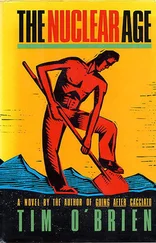12.Thomas Pynchon, The Crying of Lot 49 (1965; reprint, New York: Perennial Library, 1990), pp. 21–22.
13.Judith Herman, Trauma and Recovery (New York: Basic Books, 1992), p. 7.
14.J. W. Appel and G. W. Beebe, “Preventive Psychiatry: An Epidemiological Approach,” Journal of the American Medical Association 131 (1946), p. 1470.
15.Robert Parrish, The Magician’s Handbook (New York: Thomas Yoseloff, 1944), p. 10.
16.Robert A. Caro, The Years of Lyndon Johnson: The Path to Power (New York: Alfred A. Knopf, 1982), p. 228.
17.Woodrow Wilson, in Richard Hofstadter, The American Political Tradition (1948; reprint, New York: Vintage Books, 1989), p. 310.
18.Herman, Trauma and Recovery , p. 35.
19.Woodrow Wilson, in Hofstadter, The American Political Tradition , pp. 310–311.
20.Richard M. Nixon, The Memoirs of Richard Nixon (New York: Grosset and Dunlap, 1978), p. 1088.
21.Yes, and I’m a theory man too. Biographer, historian, medium—call me what you want—but even after four years of hard labor I’m left with little more than supposition and possibility. John Wade was a magician; he did not give away many tricks. Moreover, there are certain mysteries that weave through life itself, human motive and human desire. Even much of what might appear to be fact in this narrative—action, word, thought—must ultimately be viewed as a diligent but still imaginative reconstruction of events. I have tried, of course, to be faithful to the evidence. Yet evidence is not truth. It is only evident. In any case, Kathy Wade is forever missing, and if you require solutions, you will have to look beyond these pages. Or read a different book.
When he was a boy, John Wade’s hobby was magic. In the basement, where he practiced in front of a stand-up mirror, he made his mother’s silk scarves change color. He cut his father’s best tie with scissors and restored it whole. He placed a penny in the palm of his hand, made his hand into a fist, made the penny into a white mouse.
This was not true magic. It was trickery. But John Wade sometimes pretended otherwise, because he was a kid then, and because pretending was the thrill of magic, and because for a while what seemed to happen became a happening in itself. He was a dreamer. He liked watching his hands in the mirror, imagining how someday he would perform much grander magic, tigers becoming giraffes, beautiful girls levitating like angels in the high yellow spotlights—naked maybe, no wires or strings, just floating there.
At fourteen, when his father died, John did the tricks in his mind. He’d lie in bed at night, imagining a big blue door, and after a time the door would open and his father would walk in, take off his hat, and sit in a rocking chair beside the bed. “Well, I’m back,” his father would say, “but don’t tell your mom, she’d kill me.” He’d wink and grin. “So what’s new?”
And then they’d talk for a while, quietly, catching up on things, like cutting a tie and restoring it whole.
He met Kathy in the autumn of 1966. He was a senior at the University of Minnesota, she was a freshman. The trick then was to make her love him and never stop.
The urgency came from fear, mostly; he didn’t want to lose her. Sometimes he’d jerk awake at night, dreaming she’d left him, but when he tried to explain this to her, Kathy laughed and told him to cut it out, she’d never leave, and in any case thinking that way was destructive, it was negative and unhealthy. “Here I am,” she said, “and I’m not going anywhere.”
John thought it over for several days. “Well, all right,” he said, “but it still worries me. Things go wrong. Things don’t always last.”
“We’re not things ,” Kathy said.
“But it can happen.”
“Not with us.”
John shrugged and looked away. He was picturing his father’s big white casket. “Maybe so,” he said, “but how do we know? People lose each other.”
In early November he began spying on her. He felt some guilt at first, which bothered him, but he also found satisfaction in it. Like magic, he thought—a quick, powerful rush. He knew things he shouldn’t know. Intimate little items: what she ate for breakfast, the occasional cigarette she smoked. Finesse and deception, those were his specialties, and the spying came easily. In the evenings he’d station himself outside her dormitory, staring up at the light in her room. Later, when the light went off, he’d track her to the student union or the library or wherever else she went The issue wasn’t trust or distrust. The whole world worked by subterfuge and the will to believe. And so he’d sometimes make dates with her, and then cancel, and then wait to see how she used the time. He looked for signs of betrayal: the way she smiled at people, the way she carried herself around other men. In a way, almost, he loved her best when he was spying; it opened up a hidden world, new angles and new perspectives, new things to admire. On Thursday afternoons he’d stake out women’s basketball practice, watching from under the bleachers, taking note of her energy and enthusiasm and slim brown legs. As an athlete, he decided, Kathy wasn’t much, but he got a kick out of the little dance she’d do whenever a free throw dropped in. She had a competitive spirit that made him proud. She was a knockout in gym shorts.
Down inside, of course, John realized that the spying wasn’t proper, yet he couldn’t bring himself to stop. In part, he thought, Kathy had brought it on herself: she had a personality that lured him on. Fiercely private, fiercely independent. They’d be at a movie together, or at a party, and she’d simply vanish; she’d go out for a pack of gum and forget to return. It wasn’t thoughtlessness, really, but it wasn’t thoughtful either. Without reason, usually without warning, she’d wander away while they were browsing in a shop or bookstore, and then a moment later, when he glanced up, she’d be cleanly and purely gone, as if plucked off the planet. That fast—here, then gone—and he wouldn’t see her again for hours, or until he found her holed up in a back carrel of the library. All this put a sharp chill in his heart. He understood her need to be alone, to reserve time for herself, but too often she carried things to an extreme that made him wonder. The spying helped. No great discoveries, but at least he knew the score.
And it was fun, too—a challenge.
Occasionally he’d spend whole days just tailing her. The trick was to be patient, to stay alert, and he liked the bubbly sensation it gave him to trace her movements from spot to spot. He liked melting into crowds, positioning himself in doorways, anticipating her route as she walked across campus. It was sleight-of-body work, or sleight-of-mind, and over those cool autumn days he was carried along by the powerful, secret thrill of gaining access to a private life. Hershey bars, for instance—Kathy was addicted, she couldn’t resist. He learned about her friends, her teachers, her little habits and routines. He watched her shop for his birthday present. He was there in the drugstore when she bought her first diaphragm.
“It’s weird,” Kathy told him once, “how well you know me.”
To his surprise Kathy kept loving him, she didn’t stop, and over the course of the spring semester they made plans to be married and have children and someday live in a big old house in Minneapolis. For John it was a happy time. Except for rare occasions, he gave up spying. He was able to confide in her about his ambitions and dreams. First law school, he told her, then a job with the party, and then, when all the pieces were in place, he’d go for something big. Lieutenant governor, maybe. The U.S. Senate. He had the sequence mapped out; he knew what he wanted. Kathy listened carefully, nodding at times. Her eyes were green and smart, watchful. “Sounds fine,” she said, “but what’s it all for?”
Читать дальше












